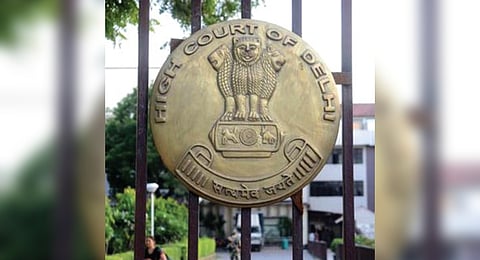

NEW DELHI: The Delhi High Court has permitted DNA testing of an accused in an over a decade-old murder case to unearth the truth regarding his guilt.
Justice Neena Bansal Krishna ordered the blood-stained shirts of the victim and the accused along with the latter's blood sample to be sent to the forensic laboratory for examination.
The results would comprise the supplementary chargesheet in the trial court, the judge said.
The court was hearing the plea of the victim's father who moved the trial court with the plea of DNA testing to prove the accused had killed his son but faced disappointment.
His son died in May 2013, following which the accused was charged for the offence of his murder.
The trial court was dealing with the case at the stage of final arguments.
The high court's April 1 judgement said though the case was at the stage of final arguments, justice "demanded the truth must be discerned" to determine the accused's guilt.
The DNA testing, the judge said, might even benefit the accused and there could be no presumption of it being in favour of the complainant father.
"In fact if there can be any independent evidence which may help in determination of the guilt or innocence of the accused persons, must not be refused to be brought on record on the specious ground of delay, especially when it entails such serious offence as (IPC) Section 302 (murder)," the court said.
Allowing the father's plea, the court said, "It is also clarified that in case the DNA profile is generated, the investigating officer may seek the blood sample of the accused for the purpose of DNA Test, in accordance with law."
Considering the case was of 2013 "essentially resting on circumstantial evidence", the court asked the "clothes of the deceased and the accused/blood sample of the accused" to be sent to the forensic lab (FSL) for testing within 15 days.
The FSL, it directed, should to give its report within two months.
The court observed the Evidence Act and the criminal procedure code were drafted more than a century ago, when scientific tools were not available.
However, the scientific methods of investigations were now available and suitable amendments had even been made in the law, it added.
It also referred to the fundamental duties under Article 51-A (h) and (j) under the Constitution to underscore the duty of every citizen of India to develop a scientific temper.
The court said since the clothes were seized in 2013, the DNA testing may not yield a positive result but that itself could not be a ground to not make "at least an effort to bring on record the independent scientific evidence".
The order said DNA report was an independent scientific methodology and couldn't be overlooked as it also aided court to deliver justice.
"With the modern tools of adjudication available, must the courts refuse to step out of their dogmas and insist upon the long route to be followed at the cost of misery of the litigants? The answer was obviously no..The age old practices and procedures must not be insisted upon when there are new, better scientific methods are available," it added.
The accused opposed the plea for DNA testing on the ground that it only intended only to fill up the lacuna in the prosecution's case after a "gross unexplained" delay.
The seizure of the accused's clothes was yet to be proved in the trial, the accused added.
The court ruled the issue over the seizure of the accused's clothes would be assessed only after the evidence was considered at the stage of final adjudication.